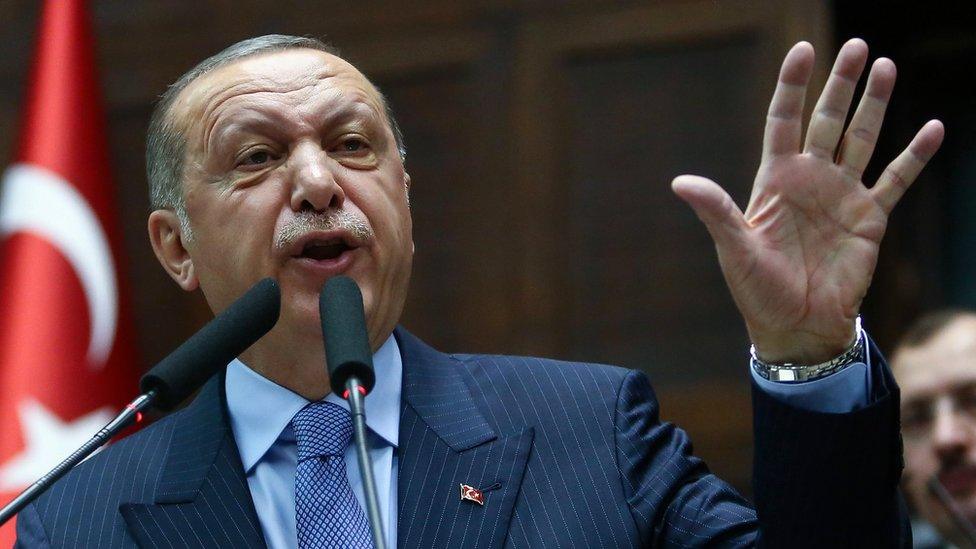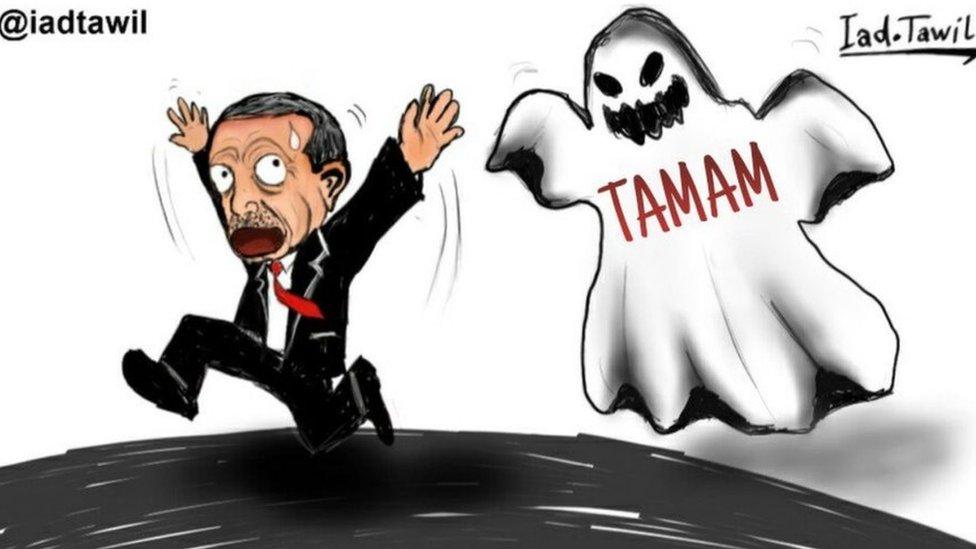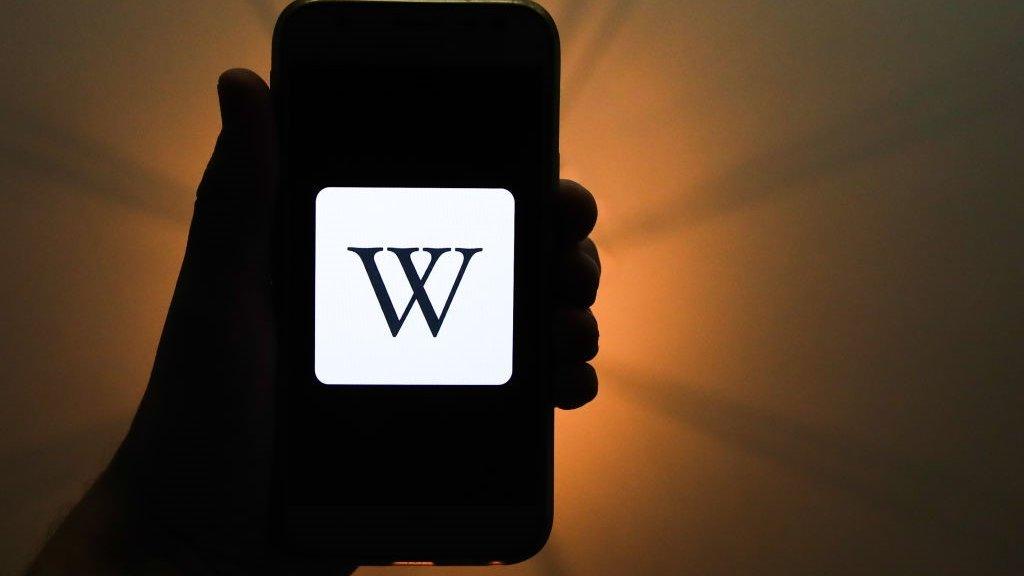Turkey's MPs vote to tighten grip on social media
- Published

Turkish President Recep Tayyip Erdogan has said social media platforms are "immoral"
Turkey's parliament has passed a law to control social media platforms, a move human rights groups say poses a severe threat to freedom of expression.
The law requires social media firms with more than a million Turkish users to set up local offices and comply with requests to remove content.
If companies refuse, they face fines and may have data speeds cut.
Facebook, Twitter and YouTube have not yet commented.
President Recep Tayyip Erdogan has described social media sites as "immoral" and made no secret of his desire to see them tightly controlled.
The bill was submitted by the ruling AKP and its partner the MHP, which together have a majority in parliament, and passed on Wednesday morning.
In the past Turkish authorities have temporarily cut internet bandwidth to stop citizens using social media, after terror attacks.
Under the new law, social media platforms face cuts of up to 95% of bandwidth, rendering them unusable.
'Brazen attack'
The internet remains a crucial tool for dissent in the country and critics say the move will lead to more censorship. The hashtag #SansurYasasinaDurDe (Say Stop to the Censorship Law) has been trending on Twitter since Tuesday.
Amnesty International describes it as "the latest, and perhaps most brazen attack on free expression in Turkey".
"The internet law significantly increases the reach of the government to police and censor content online, exacerbating risks to those who are already ruthlessly targeted by the authorities simply for expressing dissenting opinions," said the human rights group's Turkey researcher Andrew Gardner.
Presidential spokesman Ibrahim Kalin denied that the bill would lead to censorship, saying it was intended to establish commercial and legal ties with the social media platforms.
- Published9 May 2018

- Published16 January 2020
